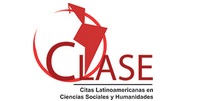La motivación para el aprendizaje de segundas lenguas minorizadas: el caso del estudio de la lengua náhuatl por universitarios hispanohablantes
##plugins.pubIds.doi.readerDisplayName## :
https://doi.org/10.32870/dse.vi23.780Résumé
Este artículo presenta un estudio sobre las motivaciones de hablantes de lenguas hegemónicas para aprender segundas lenguas minorizadas, centrándose en el caso de la lengua náhuatl. Se analizaron dos situaciones: una donde el náhuatl es considerado una lengua extranjera y en otra una lengua nacional, para identificar la asociación de motivos con determinados contextos. Los resultados muestran que los motivos instrumentales tienen mayor peso que los integradores, aun predominando factores intrínsecos. Esto es así porque el náhuatl no se visibiliza o percibe como una lengua hablada en el contexto social y académico del aprendiente, y porque las ideologías lingüísticas hispanocéntricas predominantes tienden a remarcar su valor en su sentido histórico o ideológico nacionalista, de modo que la orientación integradora responde más al deseo de incorporarse a una comunidad imaginada nacional o profesional que a querer contactar o ser parte de la comunidad nahua. Por tanto, el aprendiente valora el aprendizaje del náhuatl más como conocimiento que como medio de comunicación o integración.
Téléchargements
Téléchargements
Publiée
Versions
- 2021-07-07 (3)
- 2021-07-01 (2)
- 2021-06-30 (1)
Numéro
Rubrique
Licence
Esta obra está bajo una licencia internacional Creative Commons Atribución-NoComercial 4.0.
Una vez que los manuscritos son aceptados por los evaluadores para ser publicados, los autores deberán de suscribir una carta de cesión de derechos en favor de la Universidad de Guadalajara para la edición, publicación y difusión de su obra. Ya que sea notificada la publicación de su manuscrito, el editor de la revista le enviará un correo electrónico con el formato de la carta de cesión de derechos.















